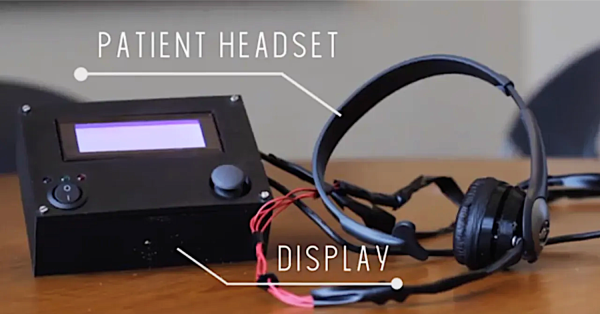Benign Paroxysmal Positional Vertigo (BPPV), or simply vertigo, is a condition that creates a sensation of dizziness and spinning, leading to nausea and loss of balance. These symptoms occur due to the dislodging of calcium carbonate crystals in the ear (imagine always feeling dizzy and having salt in your ears, not great). This disease is especially prominent in persons over 65, which is even more problematic considering such populations are especially susceptible to falling and dying from complications from the fall.
To treat vertigo, specialized physicians called vestibular specialists to guide patients through a series of head motions collectively referred to as the Epley maneuver. However, many patients must travel for hours to see a specialist since non-BPPV specialists often feel uncomfortable performing the maneuver.
As a result, Purdue Medical Innovation, Networking, and Design (MIND) developed, Verti-Fix, a solution that will guide non-BPPV specialists through the Epley maneuver using accelerometers and gyroscopes and could also be used by patients at-home as well. By doing so, Verti-Fix is able to provide feedback on how fast or how slowly patients are progressing through the maneuver. Purdue MIND coupled their device with indicator lights to alert physicians if they have performed a specific motion incorrectly and provide detailed feedback on steps performed and steps remaining on an LCD screen. The device is even powered by one of our personal favorite microcontrollers, the ATmega328P. Purdue MIND have detailed their design with schematics and code on Hackster.io giving the community an opportunity to remix, reuse, and reshare.
Purdue MIND are already upgrading their prototype to include eye-tracking and wireless capabilities. Additionally, they recently competed in the Rice 360o Design Competition and placed among the Top 20 teams! We’ll be watching to see how they advance their prototype further.
In the meantime, check out out some other at-home monitoring projects on Hackaday.











